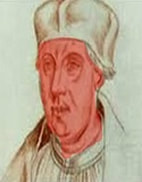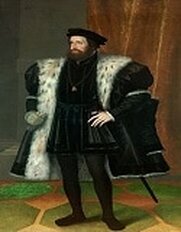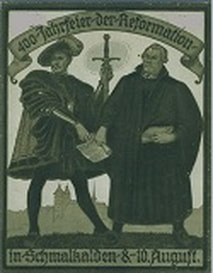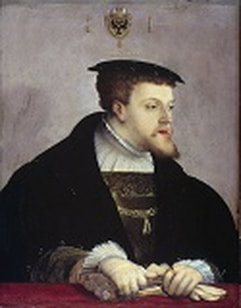Henry VIII, the Reign
Part Twenty - One -
Wolsey’s Visit to Queen Catherine
Wolsey’s Visit to Queen Catherine
 Wolsey
Wolsey
 Ferdinand
Ferdinand
 The Schmalkaldic League
The Schmalkaldic League
 Catherine's Nephew, Charles V, King of Spain and Holy Roman Emperor
Catherine's Nephew, Charles V, King of Spain and Holy Roman Emperor
|
Henry VIII, the Reign.
|
Henry VIII, the Reign.
|